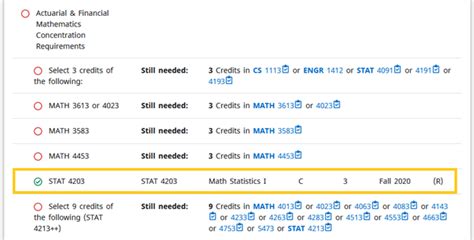Students who have experienced significant life challenges:
– Students who have faced personal or family emergencies, health issues, or military deployment may have struggled academically during those times. Academic renewal can give them a chance to wipe the slate clean and start fresh.

Students who have made poor academic choices:
– Students who have failed or done poorly in courses due to lack of effort, poor study habits, or personal issues may benefit from academic renewal. It can provide them with a second chance to demonstrate their academic abilities.
Students who have changed majors or career paths:
– Students who have changed their major or career direction may find that their previous coursework is no longer relevant to their current goals. Academic renewal can allow them to clear their transcripts of courses that are no longer applicable.
Students who have been out of school for a period of time:
– Students who have taken a break from school for personal or professional reasons may find that their academic skills have become rusty. Academic renewal can give them a chance to brush up on their skills and get back on track.
Students who are pursuing graduate school:
– Students who are planning to apply to graduate school may want to consider academic renewal if they have a low GPA or failed courses in the past. Academic renewal can help them improve their chances of admission.
Benefits of Academic Renewal
- Improved GPA: Academic renewal can significantly improve your GPA by removing failing or low grades from your transcript.
- Increased eligibility for scholarships and financial aid: A higher GPA can make you eligible for scholarships and financial aid that you might not otherwise qualify for.
- Enhanced job prospects: Employers often look at your GPA when making hiring decisions. A higher GPA can make you more competitive in the job market.
- Reduced stress: Academic renewal can relieve the stress and anxiety associated with having a low GPA or failed courses on your transcript.
Considerations Before Applying for Academic Renewal
- Check your school’s policy: Each school has its own policy on academic renewal. Be sure to check the policy carefully before applying.
- Consider the impact on your transcript: Academic renewal can clear your transcript of failing or low grades, but it will also remove any other grades from those courses. This could affect your GPA if you have earned high grades in other courses.
- Talk to your advisor: Your academic advisor can help you weigh the pros and cons of academic renewal and make the best decision for you.
How to Apply for Academic Renewal
- Submit a written request: Most schools require you to submit a written request for academic renewal. The request should include your reasons for seeking renewal and any supporting documentation.
- Meet with an academic advisor: You will likely need to meet with an academic advisor to discuss your request. The advisor can help you understand the process and make sure you meet all the requirements.
- Get approval: Once you have submitted your request and met with an advisor, you will need to wait for approval from the school. The approval process can take several weeks.
Disclaimer
Academic renewal is not a guarantee of success. It is important to remember that you will still need to work hard and earn good grades in your future courses. However, academic renewal can give you a second chance to achieve your academic goals.
